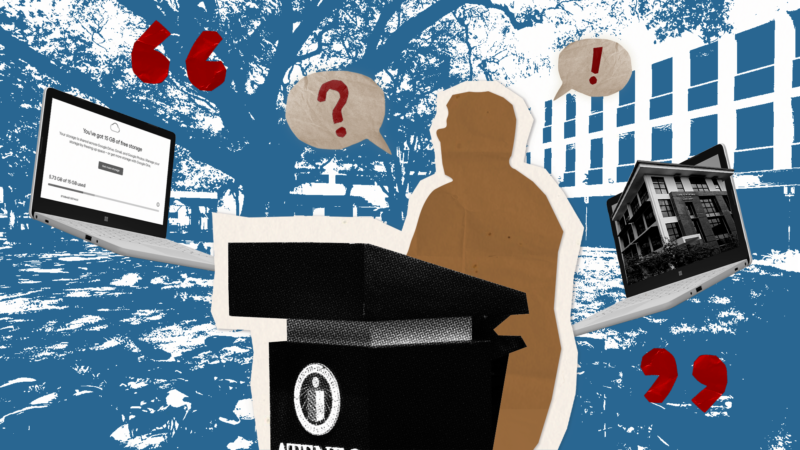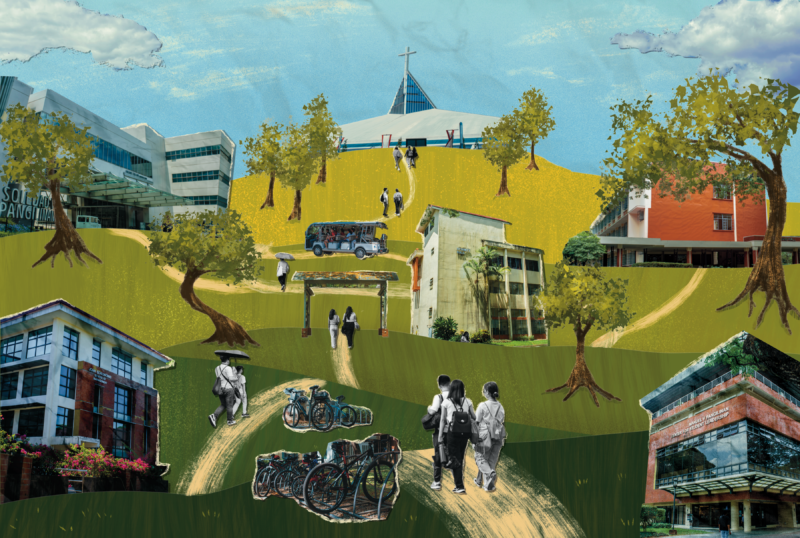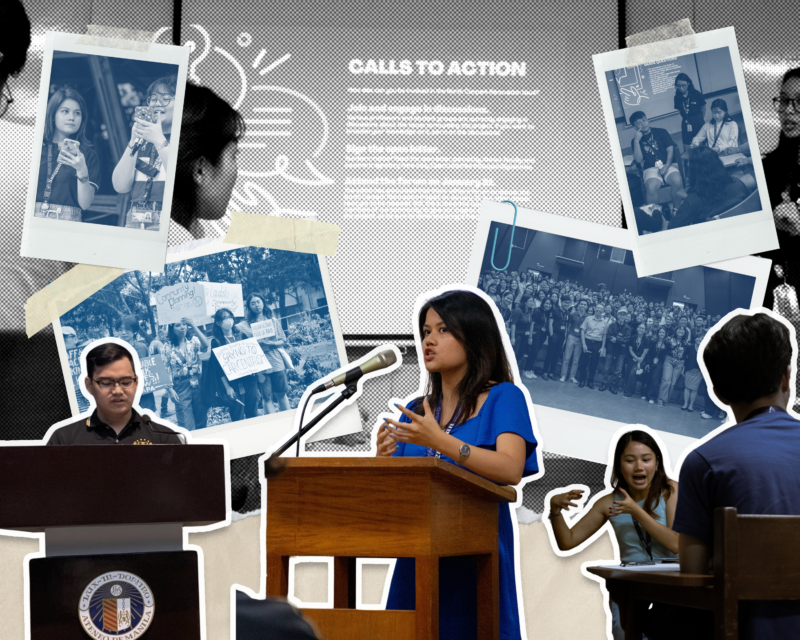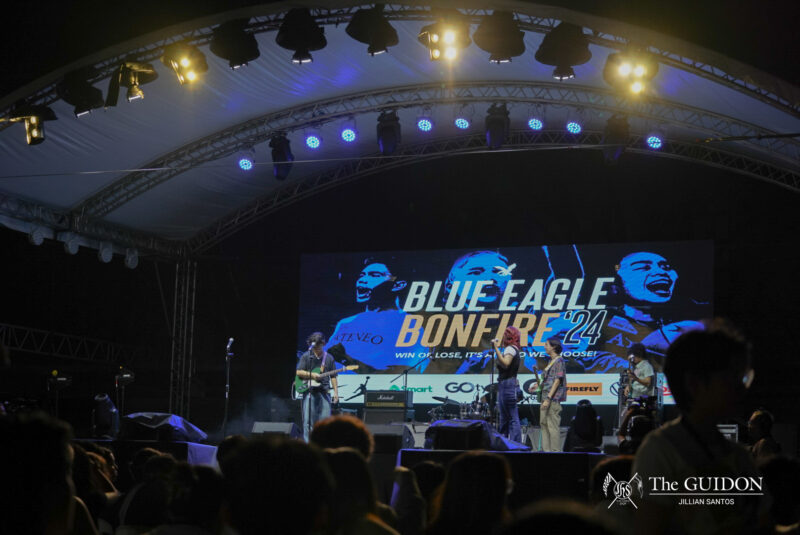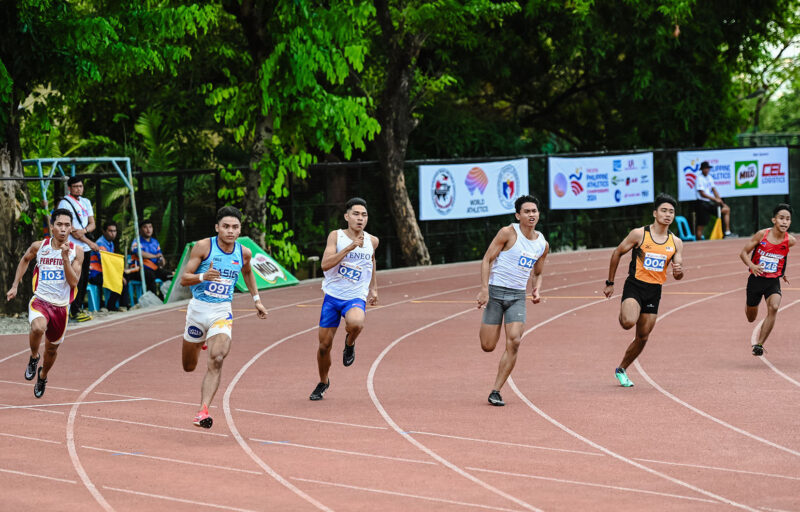IN LINE with the upcoming 2016 national elections, the Ateneo Assembly held a forum entitled Face the Nation.
It was held at the Manuel V. Pangilinan Center for Student Leadership Roofdeck on November 9.
The forum discussed pertinent issues and developments concerning the country that President Benigno Aquino III’s administration had to face over the past six years.
In line with this, a survey conducted by the Ateneo Assembly within the campus determined the top issues that concerned the youth today.
Included in the list were public transportation and other urban issues, K-12 reformatting, Priority Development Assistance Fund/Disbursement Acceleration Program, natural disasters, the South China Sea, sustainable development goals, political parties and electoral reforms, Bangsamoro, and the Anti-dynasty bill.
In order to address some of the topics on the list, various guest speakers from different political backgrounds were invited.
Guest speakers in the forum included Philippine National Police Highway Patrol Group Officer-in-Charge Arnold Gunnacao, Asian Institute of Management Policy Center Executive Director Ronald Mendoza, PhD, Undersecretary Alexander Pama, and West Philippine Sea Research and Technical Assistant Romulo Ubay Jr.
Urban congestion and public transportation
In an assessment of the traffic in EDSA, Gunnacao and his colleagues were able to determine the main issues surrounding it.
As a senior superintendent, he was given the task of enforcing traffic laws, rules, and regulations in EDSA with the Highway Patrol.
Gunnacao said that two issues are the lack of self-discipline amongst motorists along the highway, and the lack of knowledge about traffic rules and regulations amongst licensed drivers.
Meanwhile, the current road configuration in the Metro is lacking proper planning which includes the improper placement of stoplights, u-turn slots, flyovers, and the like.
According to Gunnacao, in order to address said issues, more reinforcements are needed.
He added that driver education must also be strictly implemented before granting licensure, as well as better planning for road configurations and networking.
International Relations: West Philippine Sea
During his talk, Ubay raised certain misconceptions about the West Philippine Sea and the territorial disputes surrounding the issue.
He also talked about the progress of the Philippine Delegation in Hague with regard to the claim on the territory.
According to Ubay, the claims made for the territory are all based on maritime jurisdiction placed inside the United Nations Convention on the Law of the Sea.
He added that jurisdiction could be further divided under territorial sovereignty.
“China has no right to exclusively claim the area simply on historical basis. It is intruding Philippine sovereignty,” Ubay explained.
Good Governance and Political Dynasty
According to Mendoza, “political and economic inequality are simply two sides of the same coin.”
He said that the disparity between social classes in the Philippines could also be attributed to the political inequality in the country.
Moreover, political inequality is not based on the current economic program designs, but rather on good governance and accountability.
Based on his studies on political dynasties amongst neighboring Asian countries, Mendoza was able to pinpoint certain reasons for the negative impact of the occurrence of such dynasties.
Mendoza explained that it creates a certain situation wherein further development is prevented due to the lack of having new platforms amongst running family members.
In his study, Mendoza was also able to see that wherever there were political dynasties in certain cities and municipalities, poverty incidence was also alarming.
“Statistics show that wherever you would find a political dynasty, the poverty incident would also be high,” he said.
He added that the occurrence of political dynasties advocate for the personal benefits of politicians involved in them rather than the policy and reforms that they campaign for in their positions.
Disasters and Management
During Pama’s talk, he discussed issues regarding national disaster management.
According to him, these are issues that simply cannot be put aside. “Being in an archipelago in the Pacific Ring of Fire, the Philippines is bound to experience yearly disasters that could disrupt livelihood and progress,” he said.
He discussed that hazards such as typhoons and earthquakes only become disasters depending on the preparedness of not only the people but also the government.
“Structure is key to times of disasters. First, the plan must be in place. Then, prevention and mitigation must follow in order to save lives and prevent further casualties,” he said.
Pama added, “Saving lives is one thing, but protecting them is another.”
Moreover, he said that being prepared in times of disaster enables citizens to adjust their livelihood and social needs.


